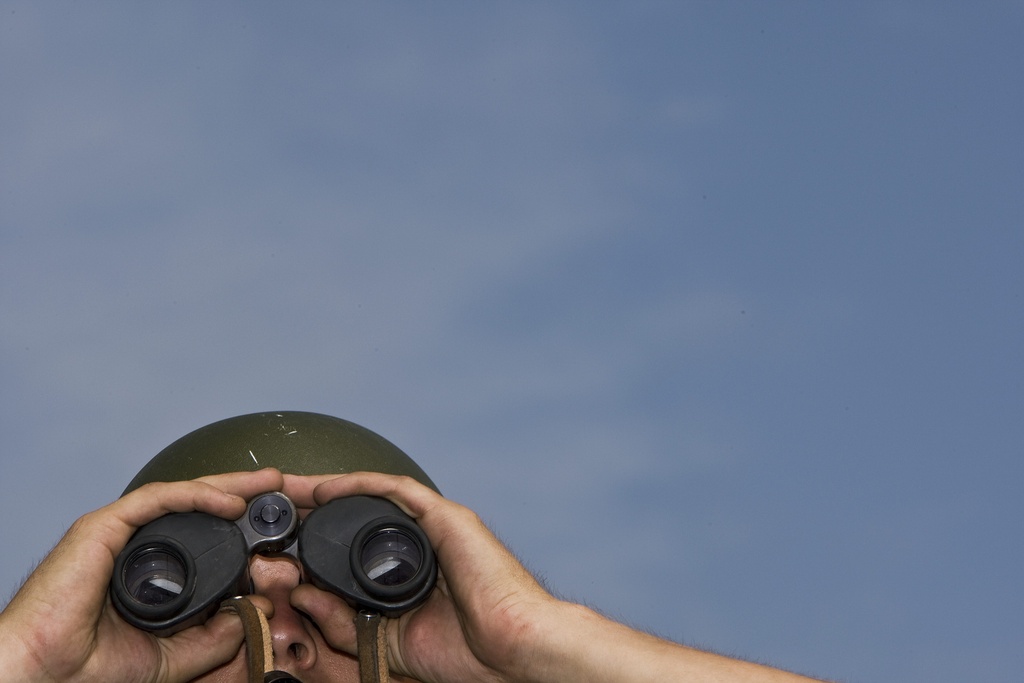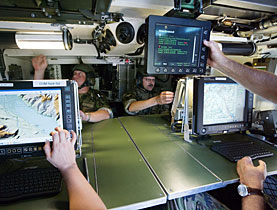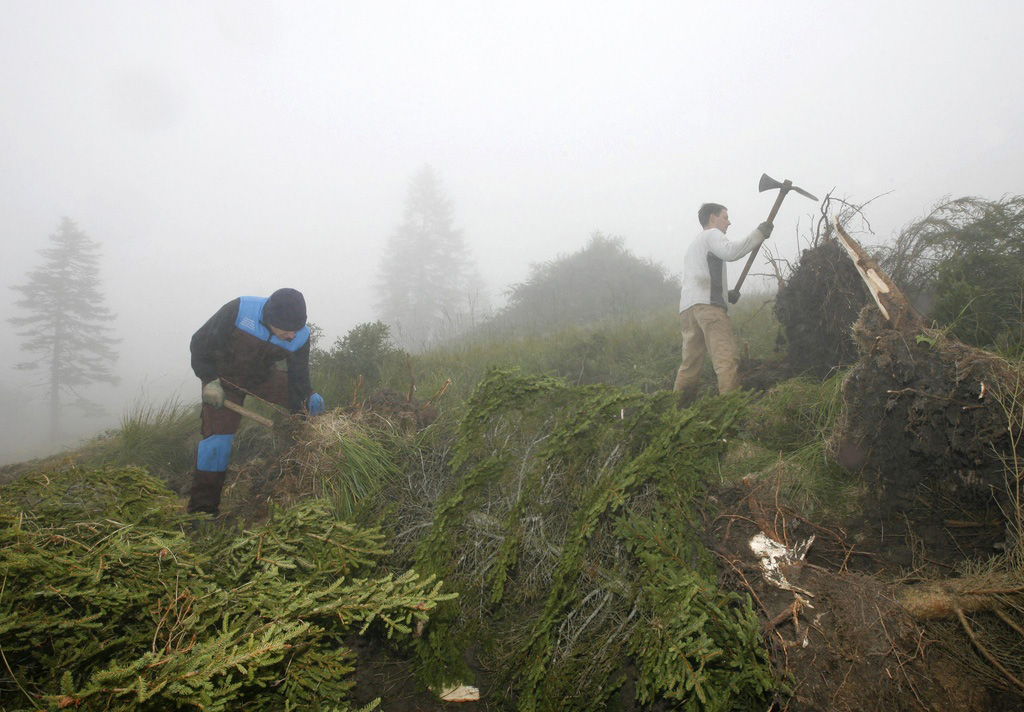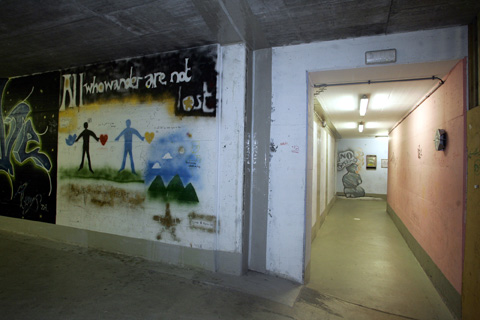Swiss army marches forward but not sure where

A report detailing Swiss security policy and the future of the country’s army is being hailed by the defence ministry as a compromise but lawmakers are not impressed.
The 78-page report attempts to tackle a controversial question: Should the Swiss army cooperate more closely with international peacekeeping efforts abroad or should it retreat to being a purely defensive force with a focus on infantry?
The answer in the report – which strives to find common ground between opposing forces – has met with little enthusiasm in the federal palace, where parliamentarians say the document leaves out key details.
Kurt Spillmann, an expert formerly at the Centre for Security Studies, says the issue is still as polarising as ever. The right is calling for isolation while the left wants more cooperation with international peacekeepers. In between lies a lot of ambiguity, he said.
“An army must be defined by its purpose,” he told swissinfo.ch. “A military threat is simply not likely within the foreseeable future. This is what makes this an extremely difficult issue politically.”
Last autumn, the government rejected a draft of the security policy filed by the defence ministry and repeatedly sent it back for amending.
The document finally approved this week now faces hearings and consultations with interested parties, before being submitted to parliament this summer.
“Maybe this report is not spectacular, but it is a reasonable consensus by a collegial government,” Defence Minister Ueli Maurer told journalists.
International efforts
The document acknowledges that potential threats to the country have remained virtually unchanged over the past decade. It questions neither the need for compulsory service by all young Swiss men nor the idea of armed neutrality. Joining Nato is out of the question.
At home, the document places an emphasis on air security and more cooperation between federal and cantonal forces in case of a natural disaster.
But Foreign Minister Micheline Calmy-Rey, a centre-left Social Democrat, has argued that today’s world would benefit from Swiss military forces being ready for deployment outside the country’s borders. Maurer, of the rightwing Swiss People’s Party, argues against it, remaining in step with his party.
The centre-right Radical Party security committee parliamentarian Peter Malama welcomed the draft as a compromise, while fellow committee member Evi Allemann of the centre-left Social Democratic Party, says the document is flawed. The Green Party has criticised the report, as has the Group for Switzerland without an Army (GSoA).
“The security report contains neither a realistic analysis of the threats nor does it offer a basis to deal with the crisis facing the army,” the GSoA said in a statement.
The document, as it is now, mentions only “an increase in Swiss participation in international security efforts”.
“Yes, we want to increase and qualitatively ramp up our commitment to peace-keeping,” Maurer said. “It’s about updating history and increasing deployments.”
But exactly how that would happen depends largely on parliament.
Tightrope
The report makes it clear that any such foray into the international peacekeeping realm would be carried out by such means as dispatching transport helicopters to crisis zones.
Missions would be made up of unarmed volunteers. That means it would not be possible to join anti-pirate forces patrolling waters off the coast of Somalia with the EU-Atalanta group.
Parliament would also have to approve any missions abroad. Maurer is doubtful that would happen based on the record of the past ten years, when parliament has shot down similar proposals.
“The general consent in the last few years has been the politest form of rejection,” Maurer said. “We’re still walking a tightrope.”
Spillmann, however, feels fundamental questions remain unanswered and that the army needs to adapt to be able to fight terrorism and cyber crime.
“All of this is possible to do within the framework of an army,” he said. “But it’s certainly not the basic strength of a militia army.”
But one thing remains certain: The army will shrink in the coming years. Maurer says that’s for demographic reasons as well as growing reluctance to take up arms and an increase in pressure to cut costs.
Tim Neville, swissinfo.ch and agencies (with input from Andreas Keiser)
Swiss are no longer convinced by the current military system. According to a survey, only 43.5% of respondents were in favour of compulsory military service.
The results were published on Thursday in the French-language news weekly, L’Hebdo. The poll showed 47% of those in German-speaking Switzerland are in favour of the system while less than one in three people in French-speaking Switzerland approves.
Only 40% of women surveyed are for the status quo for one. For men it is 46.6%. Only those older than 50 appear to support the existing system of compulsory service. Younger Swiss approve of it with 37.6 percent.
About 40% believe a professional army is the way to go. About 14.6% of people say Switzerland should have no army at all.
The survey was conducted in March 2010 by MIS Trend. It surveyed 604 Swiss citizens and has a margin of error of 4%.

In compliance with the JTI standards
More: SWI swissinfo.ch certified by the Journalism Trust Initiative














You can find an overview of ongoing debates with our journalists here . Please join us!
If you want to start a conversation about a topic raised in this article or want to report factual errors, email us at english@swissinfo.ch.